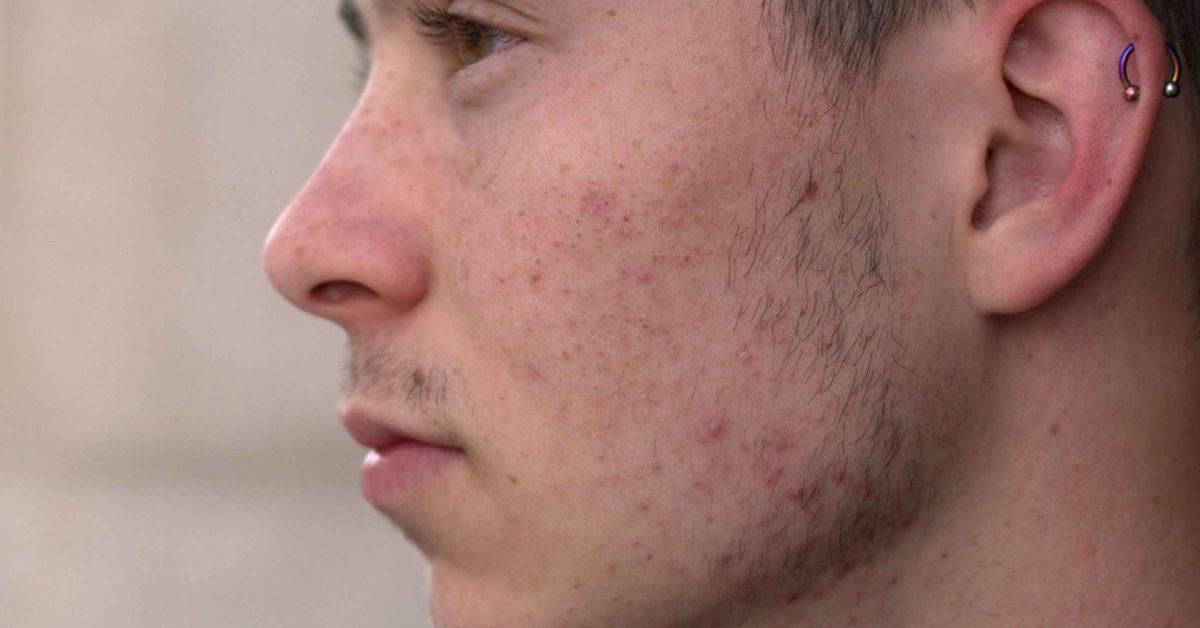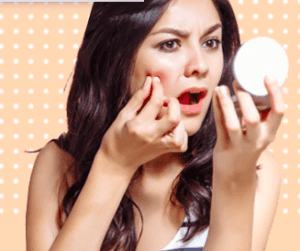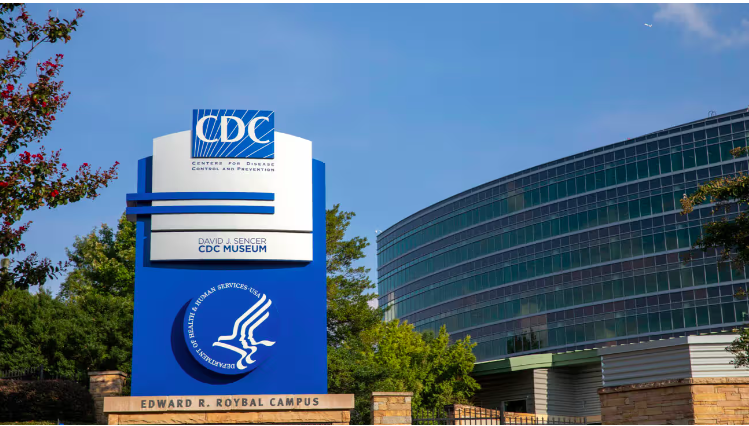Health
When Will Pimples Stop Coming? Unraveling the Mystery

Last Updated on May 23, 2023 by Nurse Vicky
When Will Pimples Stop Coming? Unraveling the Mystery
Dealing with persistent pimples can be a frustrating and confidence-denting experience. Whether you’re a teenager going through hormonal changes or an adult facing occasional breakouts, understanding when pimples will stop coming can provide some much-needed relief.
In this comprehensive guide, we will delve into the factors influencing the occurrence of pimples, discuss effective strategies to prevent and treat them and provide insights into when you can expect them to subside.
 Understanding the Causes of Pimples
Understanding the Causes of Pimples
Pimples, also known as acne, can arise due to various factors, including hormonal imbalances, excess sebum production, clogged pores, bacterial infection, and inflammation. During puberty, hormonal fluctuations trigger an increase in sebum production, leading to oily skin and the formation of pimples. However, pimples can persist beyond adolescence, affecting individuals of all ages.
Hormonal Influences on Pimples
Hormones play a significant role in the development of pimples. Androgens, a type of hormone, stimulate the sebaceous glands to produce more sebum. This excess sebum, along with dead skin cells and bacteria, clogs the hair follicles, resulting in the formation of pimples. Hormonal imbalances during menstrual cycles, pregnancy, and menopause can also contribute to breakouts in women.
Lifestyle Factors and Pimple Formation
Apart from hormones, certain lifestyle factors can influence the occurrence of pimples. Poor skincare habits, such as infrequent cleansing or using harsh products, can irritate the skin and exacerbate acne. Additionally, a diet high in processed foods, sugar, and dairy products may contribute to increased sebum production and inflammation, leading to more frequent breakouts.
Environmental Triggers of Pimples
Environmental factors can also impact the skin and trigger pimple formation. Exposure to pollutants, dust, and certain chemicals can clog pores and cause inflammation. Moreover, excessive humidity or sweating, especially when combined with friction from tight clothing, can create an ideal environment for bacterial growth and acne development.
Effective Strategies for Preventing Pimples
Preventing pimples involves adopting a holistic approach that encompasses proper skincare, lifestyle modifications, and effective management of underlying factors. Here are some strategies to help you minimize the occurrence of pimples:
Establish a Consistent Skincare Routine
Developing a regular skincare routine is crucial for maintaining clear skin. Cleanse your face twice daily with a gentle cleanser to remove excess oil, dirt, and impurities. Follow up with a non-comedogenic moisturizer to keep your skin hydrated without clogging pores. Remember to choose skincare products suitable for your skin type.
Practice Good Hygiene Habits
Maintaining good hygiene habits can help prevent the spread of bacteria and reduce the likelihood of pimple formation. Avoid touching your face with unwashed hands, as this can transfer dirt and bacteria onto your skin. Additionally, wash your pillowcases and towels regularly to minimize the accumulation of oils and bacteria.
Follow a Balanced Diet
Eating a balanced diet rich in fruits, vegetables, whole grains, and lean proteins can promote healthy skin. Avoid consuming excessive amounts of sugary and processed foods, as they can contribute to inflammation and worsen acne. Stay well-hydrated by drinking an adequate amount of water daily to help flush out toxins.
Manage Stress Levels
High levels of stress can trigger hormonal imbalances, leading to increased sebum production and breakouts. Engage in stress-reducing activities such as exercise, meditation, or hobbies that help you relax. Getting
Adequate sleep is essential for overall health, including the condition of your skin. Lack of sleep can disrupt hormone levels and increase inflammation, potentially contributing to the formation of pimples. Aim for 7-8 hours of quality sleep each night. Additionally, engaging in regular exercise helps improve blood circulation, reduces stress, and promotes healthy skin.
Avoid Excessive Sun Exposure
While moderate sun exposure can have some benefits for the skin, excessive exposure can lead to skin damage and worsen acne. Always wear sunscreen with a high SPF when spending time outdoors, and consider using non-comedogenic or oil-free formulations to prevent clogged pores.
Treating and Managing Pimples
When pimples do appear, it’s important to have effective strategies for treating and managing them. Here are some approaches you can take:
Topical Treatments
Over-the-counter topical treatments containing ingredients like benzoyl peroxide, salicylic acid, or retinoids can help reduce inflammation and unclog pores. These treatments are available in various forms, including creams, gels, and spot treatments. However, it’s essential to follow the instructions and be patient, as results may take time to become noticeable.
Professional Dermatological Interventions
If over-the-counter treatments don’t provide satisfactory results, consulting a dermatologist can be beneficial. They may recommend prescription-strength topical medications, oral antibiotics, or other treatments tailored to your specific needs. Dermatologists can also perform procedures like chemical peels, microdermabrasion, or light therapies to manage acne.
Lifestyle Adjustments
In addition to skincare and medical interventions, making certain lifestyle adjustments can help manage and prevent pimples. Avoid picking or popping pimples, as this can lead to scarring and further infection. Use oil-free and non-comedogenic cosmetics to avoid clogging pores. Also, refrain from excessive scrubbing or harsh exfoliation, as it can irritate the skin and worsen acne.
When Can You Expect Pimples to Stop Coming?
The duration of acne varies from person to person, and there isn’t a one-size-fits-all answer to when pimples will completely stop. For many individuals, acne tends to improve as they reach their twenties or thirties, as hormonal fluctuations settle down. However, some people may experience occasional breakouts even in adulthood.
It’s important to note that consistent skincare practices, a healthy lifestyle, and timely treatment can significantly reduce the frequency and severity of pimples. A few simple steps can help you get rid of pimples as fast as possible. One important step is to know your skin type.
Some types of pimples are harmless, while others are more serious. If your pimples are persistent, they might be a sign of an underlying condition. First, try to avoid touching your face. Touching pimples can cause them to spread bacteria and oil to your skin. Wash your face at least twice a day to avoid clogging your pores.
Do not over-wash your skin, however, because it can irritate sensitive skin. You can also try applying a warm compress to your face. This will help open up the pimple and release pus. The heat will also help your pimple heal. You can apply a warm compress several times a day.
Causes

If you have pimples, you may be wondering how to get rid of them. There are various home remedies that can help, such as applying a warm compress to the affected area and using toothpaste.
However, if you’re not sure of which home remedy to use, try consulting a dermatologist. They are trained in treating acne and recommending the right treatment plan.
Acne is caused by a combination of your body’s hormones and the overproduction of oil.
Hormones called androgens to stimulate the oil glands, which clog the pores and allow bacteria to grow. These bacteria produce inflammation in the skin and form pimples and cysts.
Treatments

There are many different treatments for pimples, including topical creams and medicines. Some of these methods take time to work but can help reduce the appearance of blemishes and prevent new pimples from forming. Topical treatments with salicylic acid and benzoyl peroxide can help reduce inflammation and prevent clogged pores.
Topical retinoids are medications derived from vitamin A that can also reduce the appearance of acne and prevent pore clogging. Another option for treating acne is to consult a dermatologist.
These medical professionals can prescribe medications for acne or suggest over-the-counter products that can control the skin condition. These medications will reduce sebum production in the skin, which will reduce the size and appearance of acne. They also can help prevent scarring and other effects associated with acne.
Besides taking prescription medication, you can also try some untested home remedies. You can try applying a warm compress to the pimple to encourage it to break up on its own. However, it is best to see a dermatologist if you have an inflated Attempting to squeeze a pimple yourself can cause further inflammation and scarring.
Prevention
One of the best ways to prevent pimples is to eat a healthy diet and limit your stress levels. Keeping your skin clean and moisturized is also crucial for preventing acne. Avoid popping pimples – this will only make them worse. Also, make sure you do not wear makeup, which can clog pores and trigger breakouts.
The most obvious method for preventing pimples is to wash your face regularly. You should wash your face at least twice a day, and use a mild soap or non-abrasive soap. However, you must not overdo it and wash your face too frequently. You should also moisturize your face regularly to prevent the skin from peeling.
You should also avoid using hair products that contain oil. Oily hair products can cause breakouts, as the sebaceous glands in your hair produce sebum. Sebum is a natural moisturizer for the skin, but too much can clog pores.
Additionally, people ask
Are pimples only a problem for teenagers?
No, pimples can affect individuals of all ages due to various factors, including hormones, lifestyle, and environmental triggers.
Can diet affect the occurrence of pimples?
Yes, consuming a diet high in processed food ds, sugar, and dairy products may contribute to increased sebum production and inflammation, potentially worsening acne.
Are pimples only a problem for teenagers?
Can diet affect the occurrence of pimples?
Yes, consuming a diet high in processed foods, sugar, and dairy products may contribute to increased sebum production and inflammation, potentially worsening acne.
Can stress contribute to pimples?
Yes, high levels of stress can trigger hormonal imbalances, leading to increased sebum production and breakouts.
What skincare routine should I follow to prevent pimples?
Establish a consistent skincare routine that includes gentle cleansing, moisturizing, and the use of non-comedogenic products suitable for your skin type.
How long does it take for topical treatments to show results?
Results from topical treatments may vary, but it usually takes several weeks to notice improvements in acne symptoms. Patience and consistent use are key.
When should I consult a dermatologist for my acne?
If over-the-counter treatments are not effective or if you have severe or persistent acne, it is advisable to consult a dermatologist for personalized treatment options.
Can sunlight help clear up pimples?
While moderate sun exposure can have some benefits for the skin, excessive exposure can worsen acne. Always protect your skin with sunscreen and limit sun exposure.
Should I pop my pimples to get rid of them faster?
No, popping pimples can lead to scarring, further infection, and prolonged healing time. It is best to leave them alone or seek professional guidance for safe extraction.
Is acne a sign of poor hygiene?
No, acne is not solely caused by poor hygiene. It is primarily influenced by hormonal factors, lifestyle habits, and genetics.
Will my pimples go away completely once I reach adulthood?
While acne tends to improve as individuals reach their twenties or thirties, some may experience occasional breakouts even in adulthood. Consistent skincare and healthy habits can help minimize their occurrence.
Please note that the information provided here is for informational purposes only and should not replace professional medical advice. It’s always best to consult with a healthcare professional or dermatologist for personalized guidance and treatment options based on your specific situation.
The age when acne is most common.
Acne vulgaris typically begins between the ages of 12 and 14 years old, but it typically appears earlier in female patients than in male patients. Patients reach their peak age of severity between the ages of 16 and 17 years old for female patients and between 17 and 19 years old for male patients. The ratio of males to females who suffer from acne vulgaris is a topic of much discussion.
At what age is hormonal acne at its worst?
Because people who have vaginas tend to experience the highest levels of hormonal activity in their 20s and 30s, this is the age range in which you are most likely to experience an outbreak of the hormonal form of acne. It’s common for people to have most children in their 20s, according to Dr.
I’m 18, is acne common for my age?
The result of the image search for “At what age is acne the worst?”
Adult-onset acne is common, and we have a wide variety of treatments available for adults, just as we do for adolescents.
Does acne get better with age?
Acne clears up for many people as they get older, and by the time they are in their twenties, almost all of them have found that their acne is completely gone. Some people continue to suffer from acne well into their adult years. The good news is that acne can be treated, and in some cases, breakouts can be avoided altogether. [Clears skin] A healthy skincare routine is an important component of prevention.
What is the age when acne is most common?
Acne vulgaris typically begins between the ages of 12 and 14 years old, but it typically appears earlier in female patients than in male patients. Patients reach their peak age of severity between the ages of 16 and 17 years old for female patients and between 17 and 19 years old for male patients. Concerning which gender is more likely to experience acne vulgaris, there is a lot of debate.
Conclusion
Dealing with pimples can be a challenging journey, but understanding the underlying causes and implementing effective strategies can help you manage and prevent breakouts. Remember to establish a consistent skincare routine, practice good hygiene habits, follow a balanced diet, manage stress levels, and seek professional guidance when necessary.
While it’s difficult to predict exactly when pimples will stop coming, taking proactive steps to care for your skin will contribute to clearer and healthier skin over time. Stay patient, stay diligent, and embrace a holistic approach to achieve your goal of minimizing and eventually overcoming pimples.
Health
Protein-Infused Diet Coke: The Viral ‘Dirty Soda’ Trend Taking TikTok by Storm

Protein-Infused Diet Coke: The Viral ‘Dirty Soda’ Trend Taking TikTok by Storm
The rise of quirky, unconventional food and drink trends is a staple of social media, but one concoction that’s recently captured TikTok’s imagination is “Protein Diet Coke,” fondly referred to as a “dirty soda.”
Combining the classic fizz of Diet Coke with creamy protein shakes, this bizarre yet fascinating combination has gained traction for its unique taste, nutritional benefits, and shareable aesthetic appeal.
But is it more than just a passing fad? Let’s dive into why this drink has taken the internet by storm, the health implications, and how you can make your own.
What Is Protein Diet Coke?
Protein Diet Coke is a mashup of two popular beverages: Diet Coke, known for its zero-calorie allure, and protein shakes, a go-to choice for fitness enthusiasts.
By blending these seemingly unrelated drinks, you get a fizzy, creamy concoction that surprises the palate and offers a protein-packed twist.
This beverage has become a TikTok sensation, with videos showcasing creative ways to personalize the drink by experimenting with flavors, toppings, and presentation.
How Did Protein Diet Coke Become a Trend?
The trend began with users sharing videos of themselves trying the drink and reacting to its surprising taste.
The hashtag #ProteinDietCoke amassed millions of views as influencers and everyday users alike showcased their custom recipes. Social media thrives on novelty, and the odd pairing of soda and protein shake fits the bill perfectly.
Moreover, this trend reflects a broader shift toward incorporating fun into fitness and healthy eating. As people explore unique ways to stay healthy, Protein Diet Coke offers a mix of indulgence and nutrition.
Health Benefits of Protein Diet Coke
1. Boosts Protein Intake:
Protein is essential for muscle repair, weight management, and overall body function. By mixing Diet Coke with a protein shake, you create a delicious way to meet your daily protein goals.
2. Low-Calorie Alternative:
For those watching their calorie intake, using Diet Coke and low-sugar protein shakes keeps the drink guilt-free while satisfying cravings for something sweet and fizzy.
3. A Fun Recovery Drink:
The combination of carbonation and protein makes this drink a potential post-workout recovery option. While traditional recovery drinks are effective, Protein Diet Coke brings a fun twist to replenishing nutrients.
Possible Drawbacks of Protein Diet Coke
While this beverage has many enthusiasts, it’s not without its critics.
1. Artificial Sweeteners:
Diet Coke contains artificial sweeteners like aspartame, which some people prefer to avoid due to potential health concerns.
2. Unusual Flavor:
Not everyone loves the combination of cola and creamy textures. For some, it’s an acquired taste.
3. Limited Nutritional Value from Soda:
Though protein shakes provide nutrients, the soda itself doesn’t offer significant health benefits. Consuming it in moderation is key.
How to Make Protein Diet Coke at Home
Ingredients:
- 1 can of Diet Coke (12 oz)
- 1 scoop or 8 oz of your favorite protein shake (vanilla or caramel flavors work best)
- Ice cubes
- Optional: toppings like whipped cream, syrups, or fruit
Instructions:
- Fill a glass with ice cubes.
- Pour the Diet Coke into the glass, leaving some space for the protein shake.
- Slowly add the protein shake to the Diet Coke. Stir gently to combine.
- Customize with toppings or syrups if desired.
- Enjoy immediately!
Why Do People Love It?
The allure of Protein Diet Coke lies in its unexpected combination and social media appeal.
The drink’s unique flavor profile intrigues people, while its aesthetic presentation makes it Instagram-worthy.
Additionally, it’s a fun way to consume protein without feeling like you’re drinking a traditional shake.
Creative Variations of Protein Diet Coke
1. Mocha Protein Soda:
Add a chocolate-flavored protein shake for a mocha-inspired treat.
2. Tropical Twist:
Use coconut-flavored protein powder and garnish with pineapple slices.
3. Spicy Cola Blend:
Mix in a dash of cinnamon or chili powder for a bold kick.
4. Vanilla Caramel Float:
Top with a dollop of whipped cream and caramel drizzle for an indulgent dessert-like drink.
Is Protein Diet Coke Here to Stay?
Trends often fade as quickly as they emerge, but Protein Diet Coke might have staying power due to its flexibility and nutritional appeal. As long as social media continues to celebrate creativity in the kitchen, this quirky beverage is likely to remain a go-to option for adventurous foodies.
Conclusion
Protein Diet Coke is more than just a viral sensation; it’s a testament to how creativity can turn everyday ingredients into something extraordinary.
While it may not replace traditional sources of protein or be everyone’s cup of tea (or soda), it has undeniably carved out a niche in the world of health-conscious indulgence.
Whether you’re in it for the taste, the health benefits, or the TikTok-worthy moments, this “dirty soda” trend is worth a try.
FAQs
1. Can I use regular Coke instead of Diet Coke?
Yes, but keep in mind that regular Coke has significantly more sugar and calories, which might defeat the purpose of a low-calorie drink.
2. What type of protein shake works best?
Vanilla and caramel protein shakes are popular choices because they complement the flavor of cola. However, feel free to experiment with other flavors.
3. Is Protein Diet Coke suitable for kids?
While it’s not inherently harmful, the caffeine content in Diet Coke might not be suitable for children. Opt for caffeine-free soda if making this for kids.
4. Can I make a vegan version?
Absolutely! Use plant-based protein shakes and ensure the soda is vegan-friendly.
5. How often can I drink Protein Diet Coke?
Like any treat, moderation is key. Consuming it occasionally as part of a balanced diet is perfectly fine.
References
Health
STI Epidemic: Decline in New Syphilis and Gonorrhea Cases in the US, CDC Reports
Health
Dave Coulier Opens Up About His Battle with Stage 3 Non-Hodgkin’s Lymphoma

Dave Coulier Opens Up About His Battle with Stage 3 Non-Hodgkin’s Lymphoma
A Beloved Star Faces a Serious Diagnosis
Dave Coulier, best known for his role as Joey Gladstone on the iconic sitcom Full House, has revealed a deeply personal health challenge.
The comedian and actor recently announced his diagnosis of Stage 3 Non-Hodgkin’s Lymphoma, sparking widespread concern and support from fans worldwide.
Coulier’s bravery in sharing his journey sheds light on this complex form of cancer, its symptoms, treatment options, and the importance of early detection.
What is Non-Hodgkin’s Lymphoma?
Understanding the Disease
Non-Hodgkin’s Lymphoma (NHL) is a type of cancer that originates in the lymphatic system, which is an integral part of the body’s immune defense.
This form of lymphoma is distinct from Hodgkin’s lymphoma due to differences in the cancerous cells’ appearance and behavior.
- Lymphatic System’s Role: It helps fight infections and regulates fluid balance in the body.
- Lymphoma’s Impact: NHL occurs when lymphocytes (a type of white blood cell) grow uncontrollably, leading to tumors.
Dave Coulier’s Journey: From Diagnosis to Awareness
The Diagnosis
Coulier disclosed that he had been feeling fatigued and unwell for several months before seeking medical advice.
A series of diagnostic tests, including a biopsy and imaging scans, confirmed the presence of Stage 3 Non-Hodgkin’s Lymphoma.
How He Shared the News
In a heartfelt video shared with his fans, Coulier discussed his diagnosis candidly. The star emphasized the importance of listening to one’s body and seeking medical help when something feels off.
“I’ve always tried to make people laugh, but now, I want to use my voice to educate and inspire,” he said.
Symptoms of Non-Hodgkin’s Lymphoma
Recognizing the symptoms early can make a significant difference in treatment outcomes.
Some common symptoms include:
- Swollen lymph nodes, often painless
- Persistent fatigue
- Unexplained weight loss
- Fever and night sweats
- Abdominal pain or swelling
- Chest pain, coughing, or trouble breathing
Why Early Detection Matters
Coulier’s journey highlights the importance of not ignoring persistent symptoms. Timely diagnosis can improve treatment effectiveness and overall prognosis.
Stages of Non-Hodgkin’s Lymphoma
NHL is categorized into four stages based on its spread:
- Stage 1: Cancer is localized to one lymph node region.
- Stage 2: Two or more lymph node regions on the same side of the diaphragm are affected.
- Stage 3: Cancer involves lymph nodes on both sides of the diaphragm.
- Stage 4: The disease has spread beyond the lymphatic system to other organs.
Coulier’s diagnosis at Stage 3 underscores the critical need for awareness and early intervention.
Treatment Options for Non-Hodgkin’s Lymphoma
Tailored Treatment Plans
The treatment for NHL varies depending on the stage and specific subtype.
Common approaches include:
- Chemotherapy: Often the first line of defense to target rapidly dividing cancer cells.
- Radiation Therapy: Used to shrink tumors in localized areas.
- Immunotherapy: Boosts the immune system’s ability to fight cancer.
- Targeted Therapy: Focuses on specific molecules involved in cancer growth.
Dave Coulier’s Treatment Regimen
While Coulier hasn’t shared detailed specifics about his treatment, he expressed gratitude for his medical team and the support of loved ones.
Living with Non-Hodgkin’s Lymphoma
Physical and Emotional Challenges
Coping with cancer involves more than just physical treatments. Patients often face emotional struggles, including anxiety, fear, and uncertainty.
Coulier’s Positive Outlook
Despite his diagnosis, Coulier remains optimistic, often sharing moments of humor and gratitude. His resilience inspires others battling similar challenges.
Raising Awareness for Non-Hodgkin’s Lymphoma
The Power of Advocacy
Coulier is using his platform to spread awareness about NHL. His message encourages individuals to prioritize their health and support ongoing cancer research.
Supporting Research and Treatment Advances
Progress in lymphoma treatment, such as CAR T-cell therapy and advancements in immunotherapy, offers hope for patients worldwide.
How Fans Can Show Their Support
Messages of Encouragement
Fans have flooded social media with messages of love and encouragement for Coulier. Sharing personal stories of resilience and hope strengthens the community of those affected by lymphoma.
Donating to Lymphoma Research
Supporting organizations focused on lymphoma research and patient advocacy can make a significant impact.
Conclusion:
Dave Coulier’s openness about his battle with Stage 3 Non-Hodgkin’s Lymphoma reminds us of the importance of health awareness and community support. As he navigates this challenging chapter, his strength and advocacy serve as a beacon of hope for others facing similar battles.
FAQs
1. Can Non-Hodgkin’s Lymphoma be cured?
Yes, many cases of NHL can be treated effectively, especially when diagnosed early. Advanced treatments have improved survival rates significantly.
2. How does Non-Hodgkin’s Lymphoma differ from Hodgkin’s Lymphoma?
The primary difference lies in the specific type of cancerous cells. Hodgkin’s Lymphoma involves Reed-Sternberg cells, which are absent in NHL.
3. Are there lifestyle factors that increase the risk of NHL?
While the exact cause is unknown, factors like a weakened immune system, certain infections, and exposure to specific chemicals can increase risk.
4. What support resources are available for NHL patients?
Numerous organizations, such as the Lymphoma Research Foundation, offer resources, support groups, and financial assistance for patients and their families.
5. How can I reduce my risk of developing lymphoma?
Maintaining a healthy lifestyle, avoiding exposure to harmful chemicals, and addressing infections promptly can help lower your risk.
References:
-

 Trending Stories1 year ago
Trending Stories1 year agoCDC: 1 in 4 Americans Still COVID-Free by End of 2022
-

 Health8 months ago
Health8 months agoHow Do Pawpaw Seeds Support Cardiovascular Health?
-

 Health5 years ago
Health5 years agoMeghan Trainor Shares Motivational New Song ‘Blink’
-

 Health2 years ago
Health2 years agoHow Long Does Monkey Pox Last Before It Surfaces in the Body?
-

 Health3 years ago
Health3 years agoWhat Causes Swollen Body? Understanding Edema and its Triggers
-

 Health3 years ago
Health3 years agoNutrition and the Importance of a Fitness Program – 3 Things to Know
-

 Health3 years ago
Health3 years ago5 Weird Reasons Why Pimples Disappear After Marriage
-

 Health3 years ago
Health3 years agoHealth Benefits Of Pawpaw Seed? 7 Things To Know






